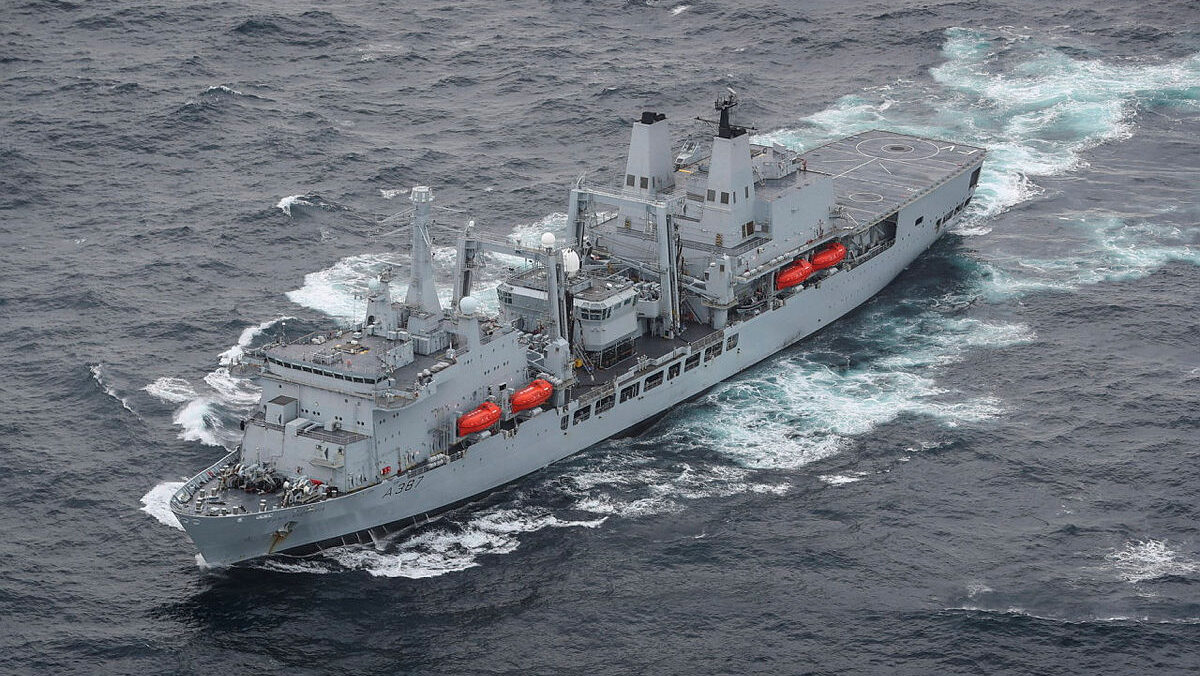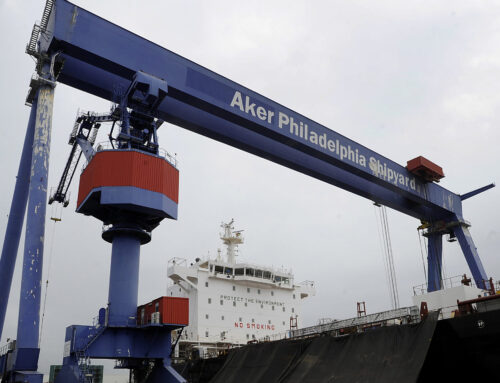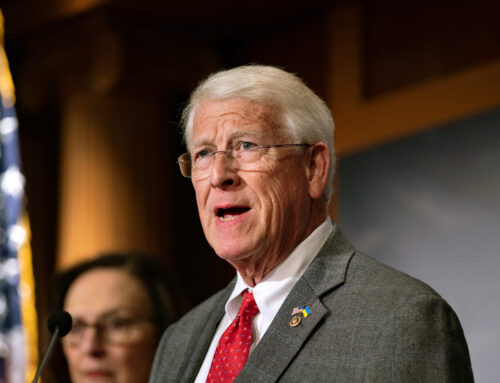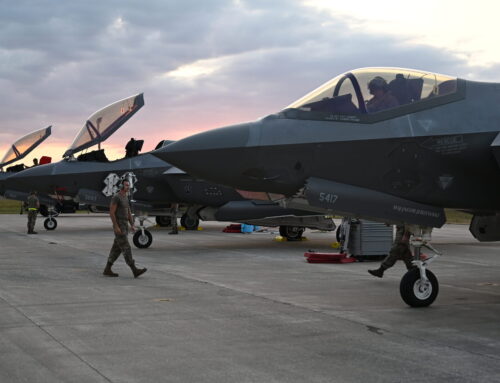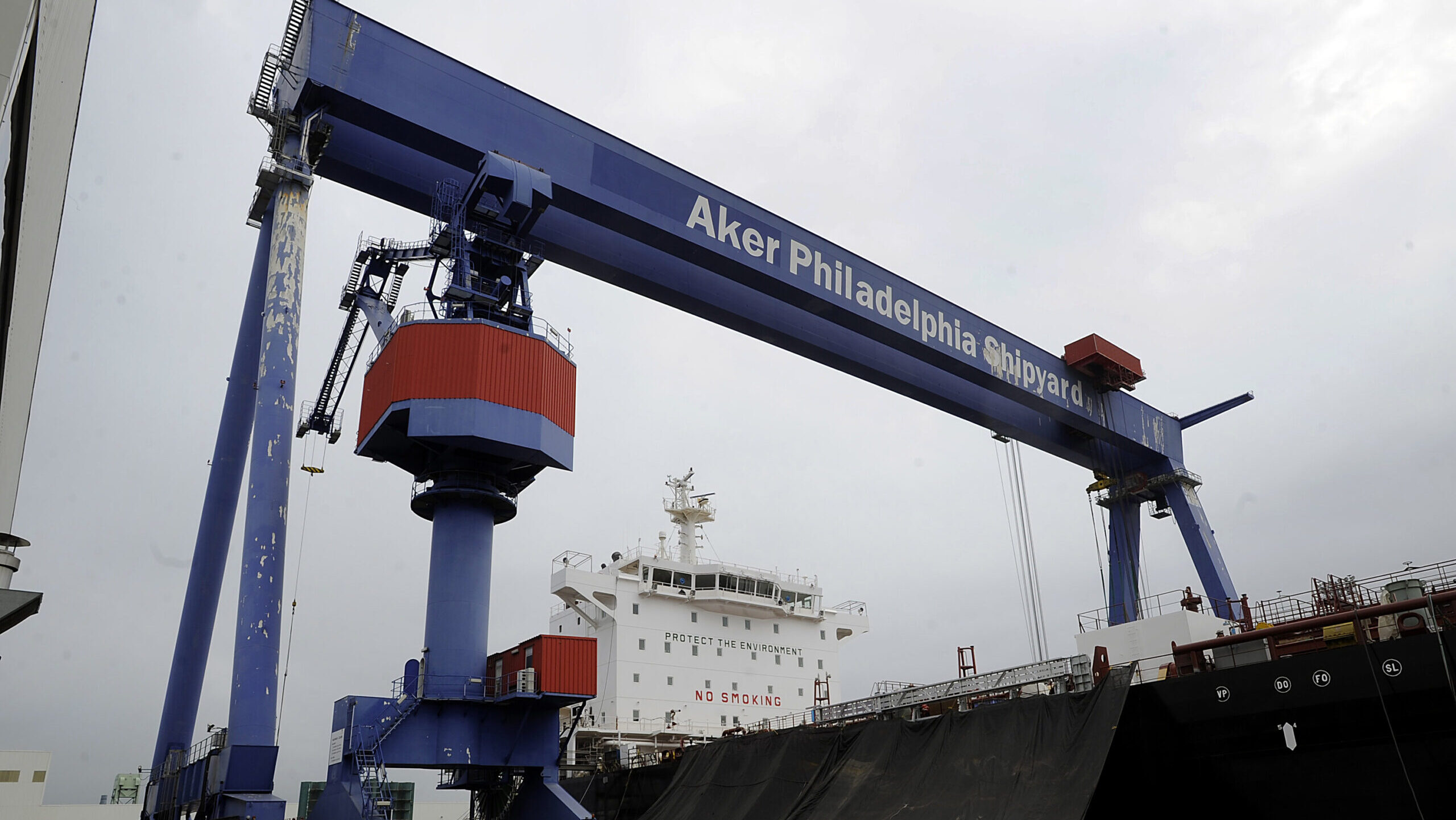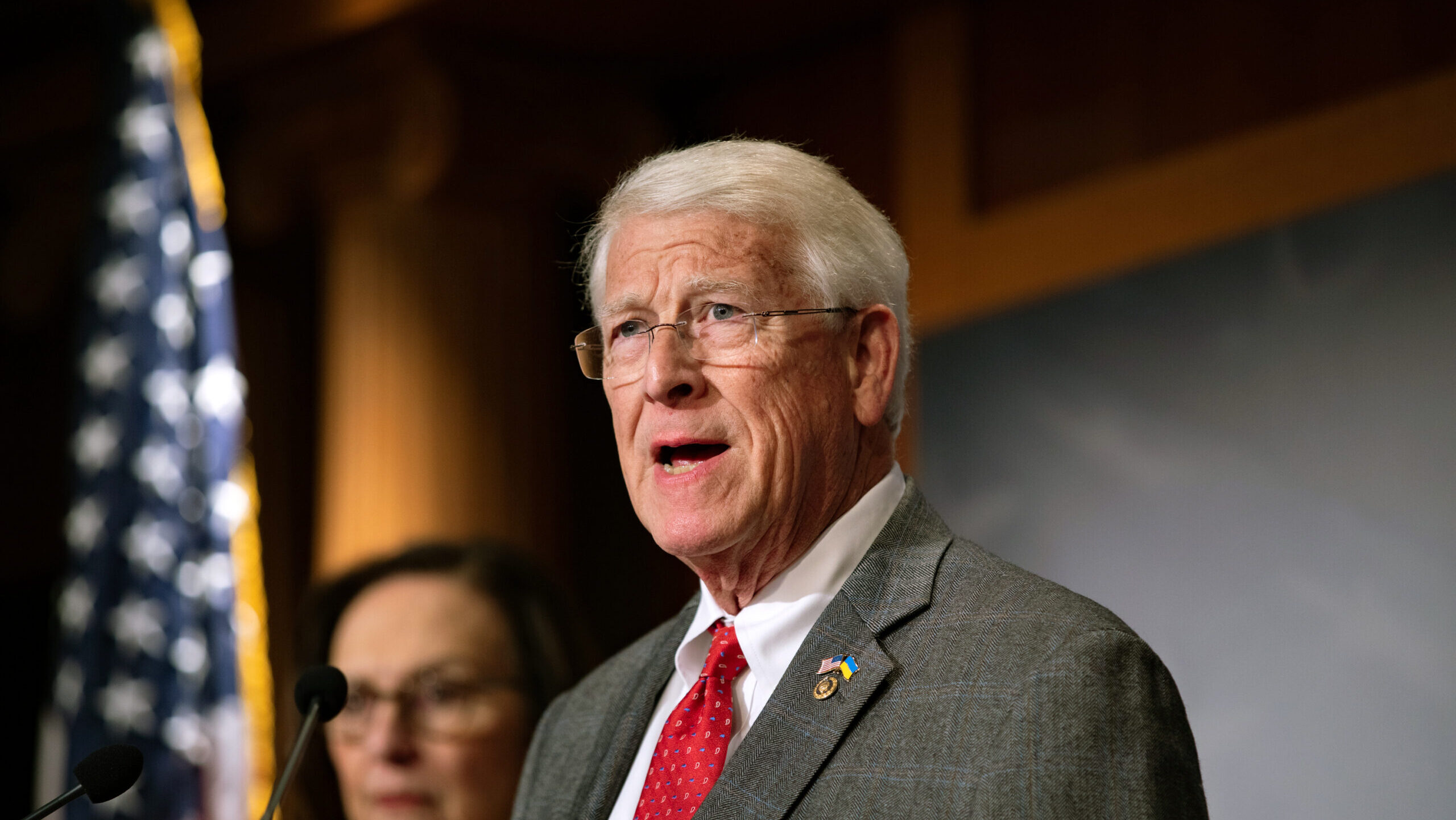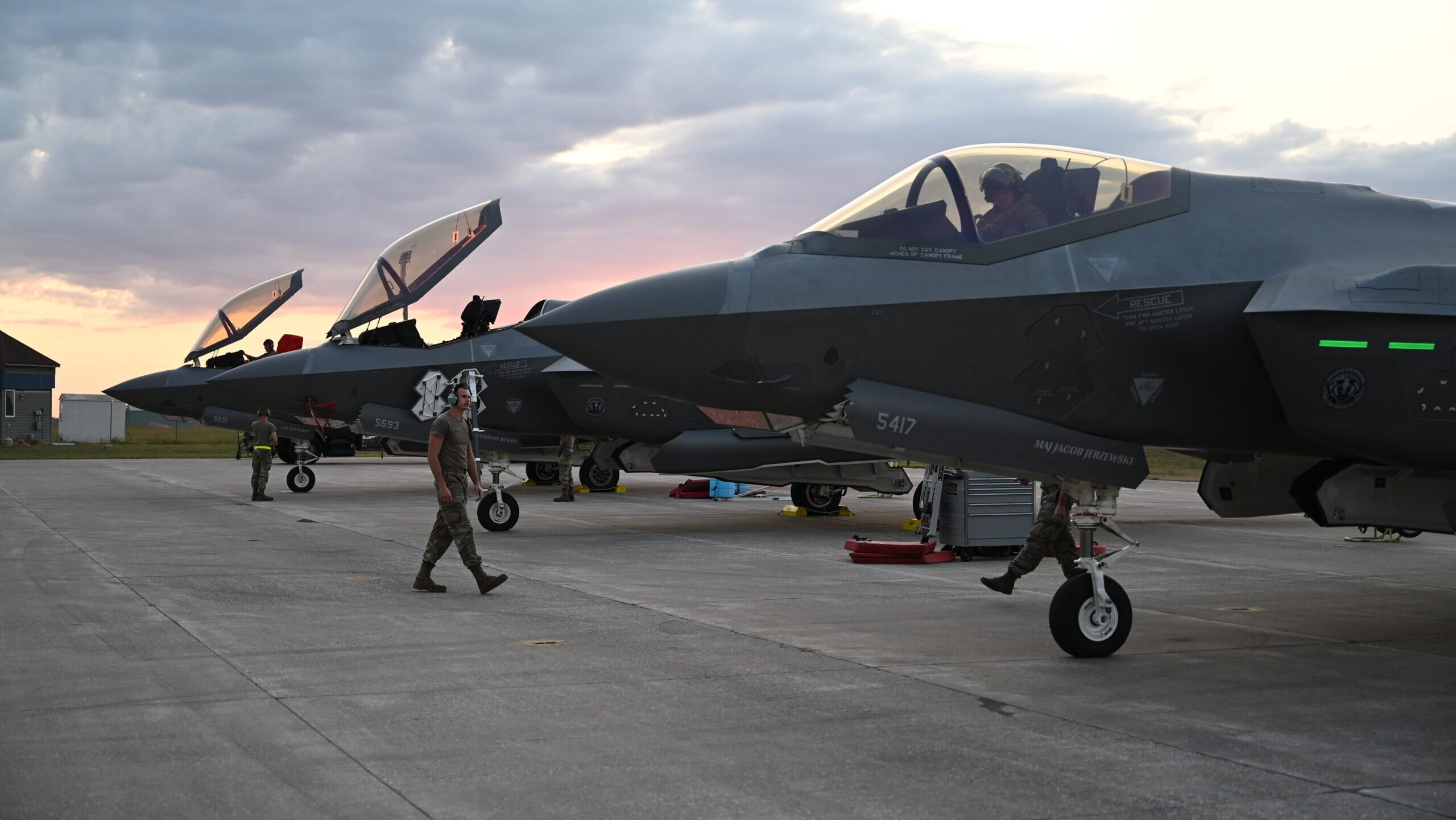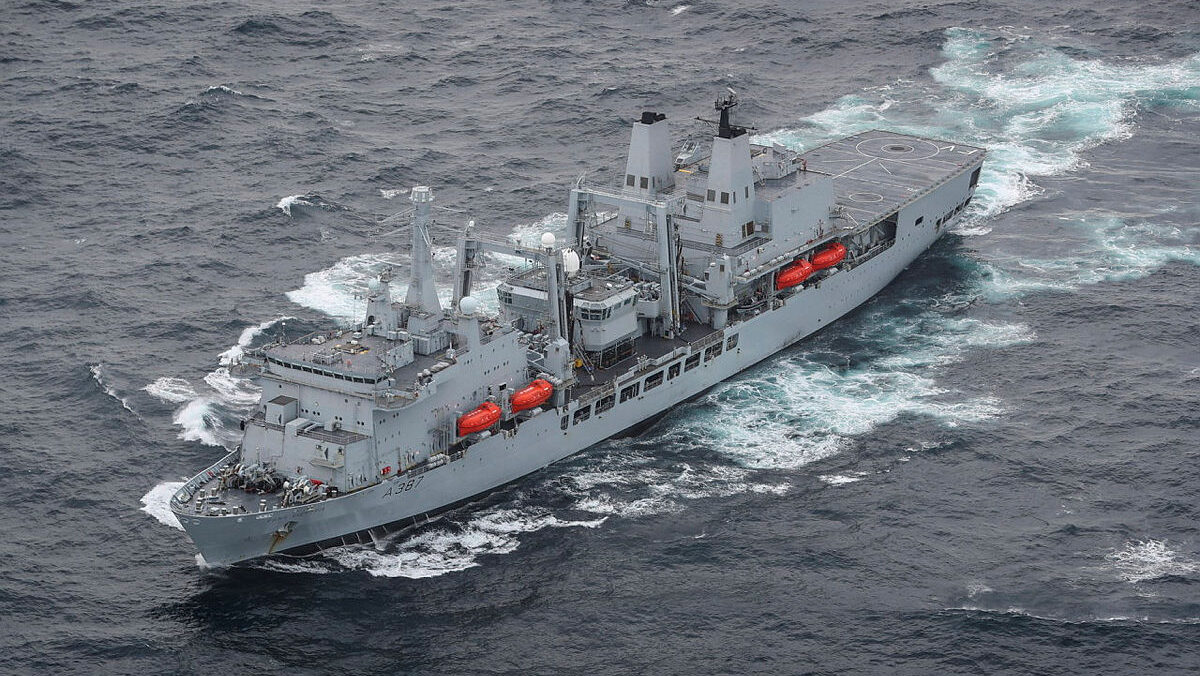
The UK Royal Navy’s RFA Fort Victoria will be replaced by a fleet of three Future Solid Support (FFS) ships (UK MoD)
BELFAST — The British arm of Spanish state-owned shipbuilder Navantia will acquire the UK shipyard Harland & Wolff in a rescue deal that Navantia says will relieve the struggling yard from administration and protect the UK Royal Navy’s £1.6 billion ($2 billion) Fleet Solid Support (FFS) contract.
The two shipbuilders have been in talks since October, but a breakthrough was made today, with a deal “expected to be completed in January 2025,” according to Navantia UK. Under terms of the buyout the firm will acquire all four of Harland & Wolff’s yards.
Best known for building the Titanic, the ailing shipbuilder operates two yards in Scotland (Arnish and Methil), one in England (Appledore) and one in Northern Ireland (Belfast).
“The FSS ships are important for safeguarding the UK’s aircraft carriers’ military capability by delivering vital supplies to the Carrier Strike Group, and this deal will ensure the UK’s shipbuilding capability by retaining jobs and manufacturing in the UK,” the British Ministry of Defence said in a statement, noting an “amendment” has been made to the FSS contract.
In comments shared with media, UK business secretary Jonathan Reynolds said that the FSS contract change was “relatively minor.”
He defended approval of the amendment as a “far better solution than what was on the table when we initially came to office, which would have been a loan guarantee, which I believe would have lost the taxpayer all of its money, and not deliver the ships and not secure the yards or the jobs.”
Neither Navantia UK or the UK Ministry of Defence disclosed the sum paid for Harland & Wolff, but a fee in the region of £70 million has been widely reportedly.
Harland & Wolff have not commented on the deal publicly, and after requesting comment today, Breaking Defense received an email mirroring a September statement, which at the time noted that its subsidiaries were “not subject to the insolvency process” and directing further inquiry to administrators at corporate consulting firm Teneo. A spokesperson for Teneo declined to comment.
Drawing on a number of key issues relating to the rescue deal, Nick Childs, senior fellow for naval forces and maritime security at the International Institute for Strategic Studies (IISS) told Breaking Defense that although the deal “is potentially a significant lifeline” for Harland & Wolff, several outstanding questions remain, including that of a “price tag” and “what will it mean for both the share and the type of work that will go to H&W as part of the FSS contract?”
As for wider implications of the buyout, he shared that the “key in the long term for the UK shipbuilding industrial base is what level of commitment there will be from this government to future orders and the shipbuilding plan it inherited and the extent to which this deal will put H&W in a position realistically to compete for future work as well.”
Navantia had long lobbied for the UK to improve the terms of the FSS contract, arguing such a compromise was necessary to protect the build and delivery of the three-ship procurement. The future ships are set to boost British surface fleet store based capabilities which are currently held by a single UK vessel — RFA Fort Victoria — a hull over 30 years old. The new fleet will be operated by the Royal Fleet Auxillary, the Royal Navy’s logistics and support arm.
Production of the new ships is slated for 2025, and all three vessels are planned to be operational by 2032. The 216-metre-long vessels are set to be constructed in Belfast, Appledore and Navantia’s Puerto Real facility in Cadiz, Spain.
In October, plans for the ship passed the Preliminary Design Review, a milestone that Navantia UK said “confirmed the robustness and maturity of the design.”
London initially awarded a FSS production contract in 2023 to the Team Resolute consortium, made up of BMT, a British naval design and consulting group; Harland & Wolff and Navantia UK. The award followed a long-delayed and often politically bruising effort by the MoD to select a contractor for the high-dollar program.
The FFS effort is one of seven “Royal Navy Fleet of the Future” programs included in the UK’s 2022 National Shipbuilding Strategy Refresh [PDF].


